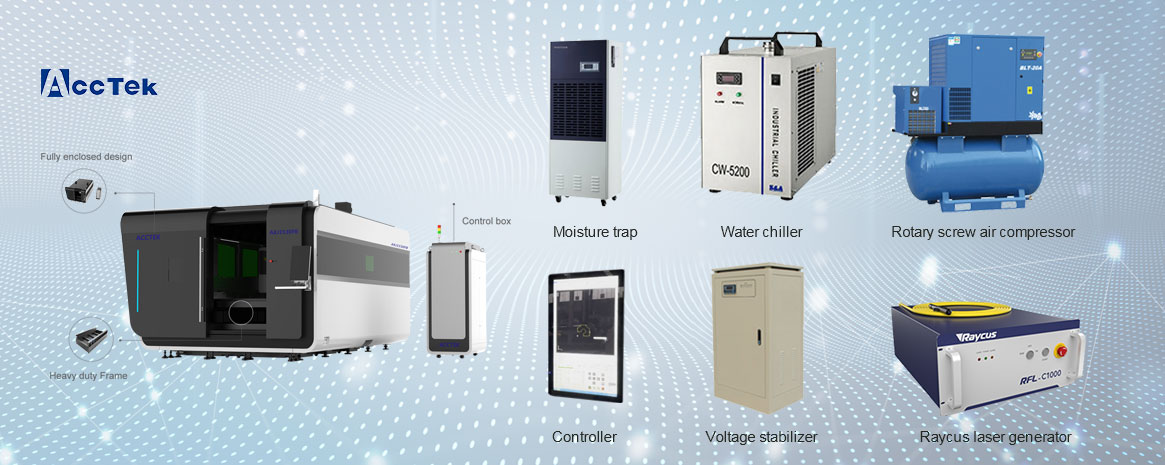1. Cut metal with light
Laser cutting is achieved by applying high power density energy generated by laser focusing. Under the control of the computer, the laser is discharged through pulses, thereby outputting a controlled repetitive high-frequency pulsed laser to form a beam with a certain frequency and a certain pulse width. The pulsed laser beam is guided and reflected by the optical path and focused by the focusing lens group. On the surface of the processed object, a small, high-energy density light spot is formed. The focal spot is located near the surface to be processed, and the processed material is melted or vaporized at an instant high temperature.
Each high-energy laser pulse instantly sputters a small hole on the surface of the object. Under computer control, the laser processing head and the processed material perform continuous relative movement according to the pre-drawn graphics, so that the object will be processed into The shape you want.
2. The difference between fiber laser and CO2 laser
The figure shows the comparison of the absorption rate of plastic, metal, ceramic and glass for different wavelengths of laser light. Because the wavelength of the laser produced by the fiber laser is 1.06um, the wavelength of the laser produced by the CO2 laser is 10.6um. As shown in the figure, the absorption rate of the laser light produced by the fiber laser is much better than the absorption rate of the laser light produced by the co2 laser.
In addition to the higher absorption rate of the laser light produced by the fiber laser, the beam quality of the laser light produced by the fiber laser is better than that of the co2 laser.
The beam quality of the laser produced by the 2000w fiber laser is: 2mm-mrad
The beam quality of the laser produced by the 2000w CO2 laser is: 3.5mm-mrad
The beam quality of the laser produced by the 4000W co2 laser is: 4.5mm-mrad
Because the absorption of fiber laser by metal materials is better than that of CO2 laser, and the beam quality of 2000w fiber laser is better than that of 4000w CO2 laser. Therefore, by using a 2000W fiber laser to split the light gate, a 4000W CO2 laser can achieve the same welding effect by splitting the power, or even better.





